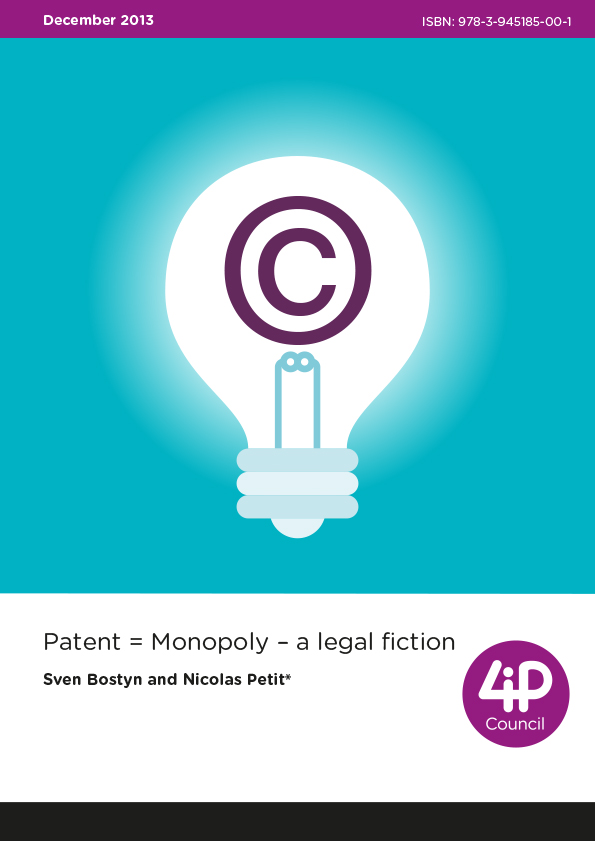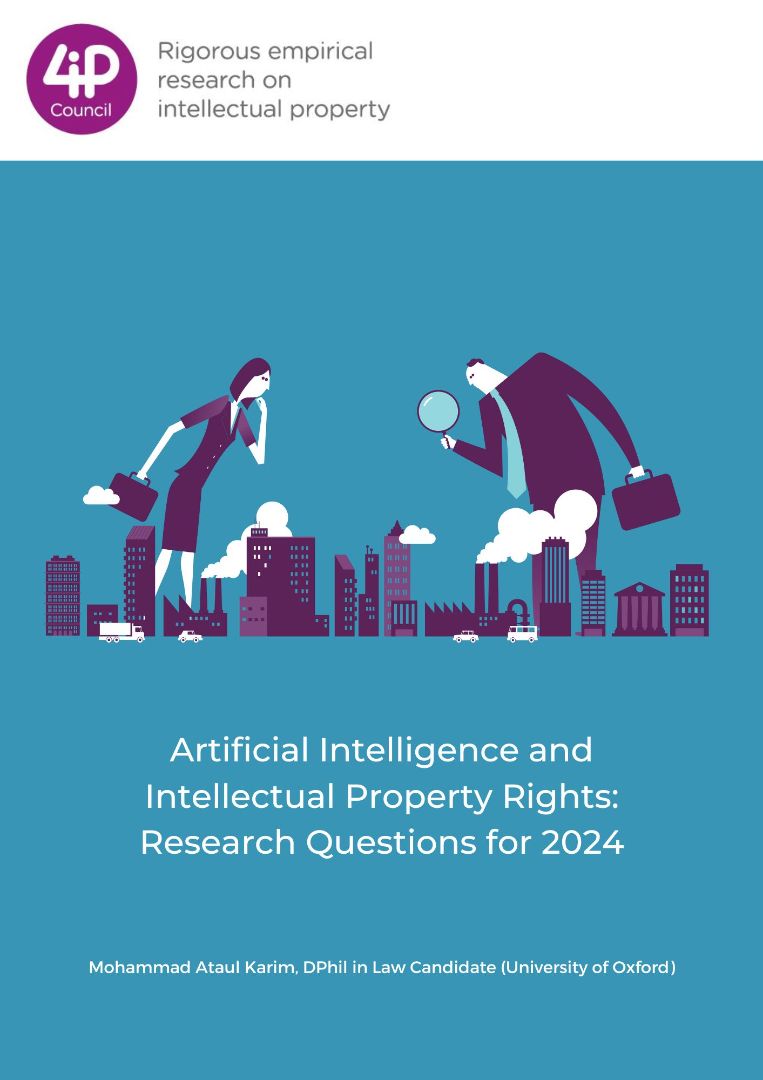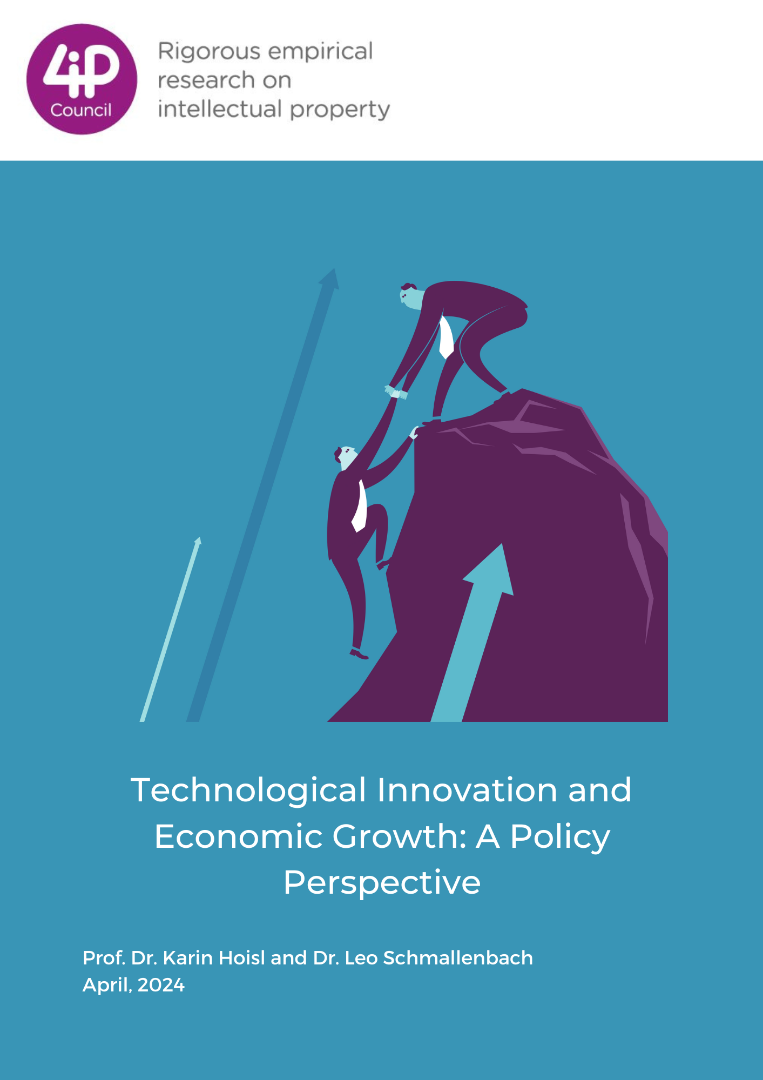PATENT=MONOPOLY – A LEGAL FICTION
Sven Bostyn and Nicolas Petit∗∗
Executive Summary
A patent right is an exclusionary right. With it, the patent holder can exclude third parties from making, using, selling, etc. products or processes protected by his patent. In the past, this right has also been referred to as a ‘monopoly right’ and this has lead to considerable confusion about the scope of patent rights and the role of the patent system in a modern economy. This paper seeks to provide some clarity on this issue and highlight the distinction between the exclusionary right granted by patent law and the notion of monopoly in economic regulation.
Society allocates exclusionary rights to patent holders for a simple, compelling reason: to incentivise innovation. Innovation is a costly business. It requires considerable upfront investments in activities that may not yield any fruits. And innovation is risky. As soon as an innovative technology appears, anyone can copy it, and compete for a trivial cost with the inventor.
Obviously, no inventor is ready to invest large sums of money absent a prospect of reasonable recoupment. Patent rights seek precisely to solve this “underinvestment” market failure. In exchange for the disclosure of his invention, the inventor receives the right to be the first to place the invention on the market, and to limit third parties’ ability to use his technology. This system is of critical importance in many sectors (for instance, in the high-tech, pharmaceutical and biotech sectors, where investments are high and the costs of replication are low).
In spite of the above, a patent of itself comes nowhere close to a monopoly. From a legal perspective, a patent simply offers a market opportunity for the patentee to commercialise successfully a product implementing the patented technology. A patent is however not any guarantee at all that the patented technology will gain such massive, traction on the market, as to hold a monopoly (for instance, because there may be no market for the patented technology). Put simply, patents reward invention, not commercialisation.
Similarly, a patent is not a monopoly in the economic sense. First, because in the real life, the
possession of a patent does not unravel into the “single supplier” setting typical of most monopolies.
Second because the vast majority of products which are based on a patent cannot be marketed at a monopoly price, for the existence of substitutes on the market allows buyers to choose amongst different products.
All in all, this casts doubts on the fallacious, emerging equation that (i) patents are akin to monopolies; (ii) that holders’ patent-protection strategies are abusive; and (iii) that such strategies warrant scrutiny under the antitrust rules.






